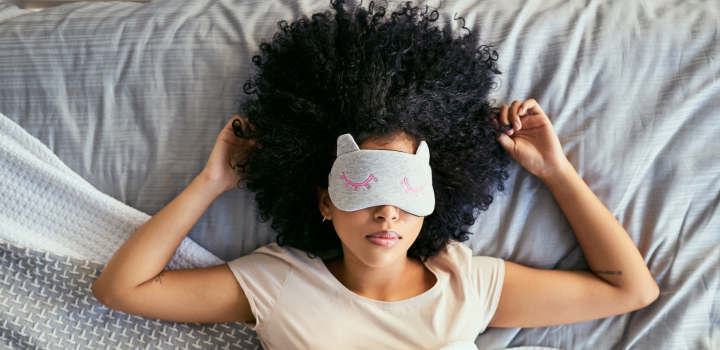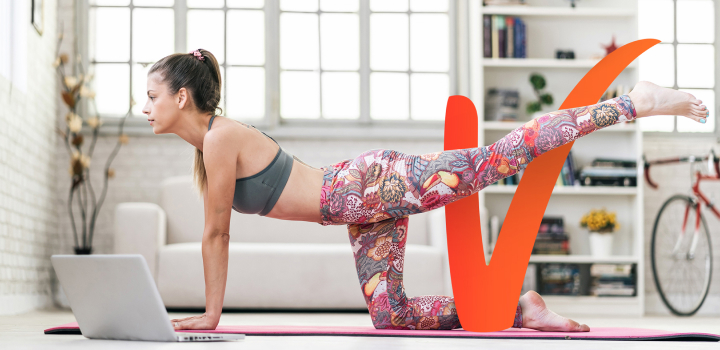It is more important to get a good night's rest than ever

Along with pretty much everything else, sleep patterns have been affected by the change in routine that is being experienced globally.
Have you found yourself getting to bed later, because it "feels like the holidays" in some ways, then you are up early to join that online morning meeting? Sleep patterns are quite out of sync for many of us while we stay at home, especially for those who work from home - or suddenly find ourselves home-schooling.
It may take a bit of effort, but it is essential to maintain your mental wellbeing with proper sleep patterns while we are at home for this period.
Vitality wellness practitioner Dr Seranne Motilal says: "We know how sleep is essential for boosting immunity, bolstering physical well-being. Sleep may be as important as diet and exercise in maintaining our physical and mental wellbeing. It is also an indicator of other mental health challenges and therefore could be understood as an indicator of wellbeing."
Understanding sleep during COVID-19 and staying at home
"During times of heightened stress, such as this, the excessive worrying may impact our ability to sleep," says Motilal.
Although every person reacts differently and is therefore impacted differently, within the current global context of us staying at home, we are experiencing a range of additional stressors, she adds.
These changes include changes in lifestyle and daily routines which have created a challenge in keeping track of the time and day. "We no longer have our typical environmental cues (e.g. eating breakfast, going to work, school drop-offs, meetings, night time routines) to help maintain sleep cycles. There is also the temptation to oversleep or sleep more when working from home," Motilal says.
We are also more worried about life, right now. "This reciprocal relationship with sleep means there may be increased anxiety that leads to a unhealthy sleep patterns, and poor sleep may also make our mental health challenges and mental wellbeing, worse" she adds.
And to top it off, poor sleep may make it difficult to concentrate - and make us more irritable in our relationships at home.
Solutions for the sleep problem
If you have a severe sleep problem, consult your doctor or arrange a virtual consult.
For milder issues, there are ways to improve sleep. Firstly, reduce stimulants like caffeine, nicotine, and large meals in the late afternoon.
"It is a tough ask, but try to reduce excessive screen time - which makes us busier, and more anxious if we are reading the news," Motilal says.
"Be aware of your engagement with social media and the potential for information overload or focusing too much on only 'negative' information. Engage with valid sources of information and strive towards engaging with uplifting news and information," she says.
A few tips include:
- Intentionally structuring time in your day to unwind and relax. Meditate if you can.
- Be mindful of looking after your physical wellbeing by sticking to a healthy diet, avoid stimulants, and include exercise (well before bed time) or some movement daily.
- Connect with those around you, and virtually with those outside the home.
- Try to use your bed and bedroom mostly for sleep. Use sleep hygiene practices like adjusting lighting, room temperature, bed linen and reduce "noise" and disturbances like cellphones.
- Create regular sleep-wake routines that are manageable and healthy, and avoid day time naps if possible.
- Keep your daily routine structured. Exercise, move, meditate or stretch when you are feeling fatigued. Try eating at the same time in the day. Continue to shower or bath at the usual time and get dressed, even if you are social distancing.
And if all else fails...
"If you still cannot fall asleep, try not to force it. Break the pattern. Reset and try again. In other words, if you are tossing and turning, get out of bed and try instead to read, or listen to audio (e.g. music, a podcast story), however try not to engage in an activity that is going to be too stimulating like work projects. Instead of focusing on 'falling asleep' rather focus on relaxing and getting your mind to settle by meditation, practising mindfulness, engaging in an activity that you enjoy and find relaxing," she adds.
"It is reasonable to expect the possibility that our sleeping patterns may be impacted right now. Not getting a good night sleep may be a very normal response to an abnormal situation. People seem to be over-performing at work in response, in some cases. Striving for perfection is not the goal. Working towards looking after your well-being is," says Motilal.
"Stressing about sleep may have a cyclic effect - worrying about not falling asleep, may be the element preventing you from falling asleep. Try to accept that you cannot force yourself to fall asleep or stay asleep. You can instead focus on engaging in relaxation exercises, or sleep apps. Listen to what your body needs at that moment," she says.

Introducing Vitality at Home
Vitality brings you Vitality at Home so you can continue to achieve your fitness and nutrition goals.
We're pulling out all the stops to help you stay healthy and rewarded during this stay at home period.